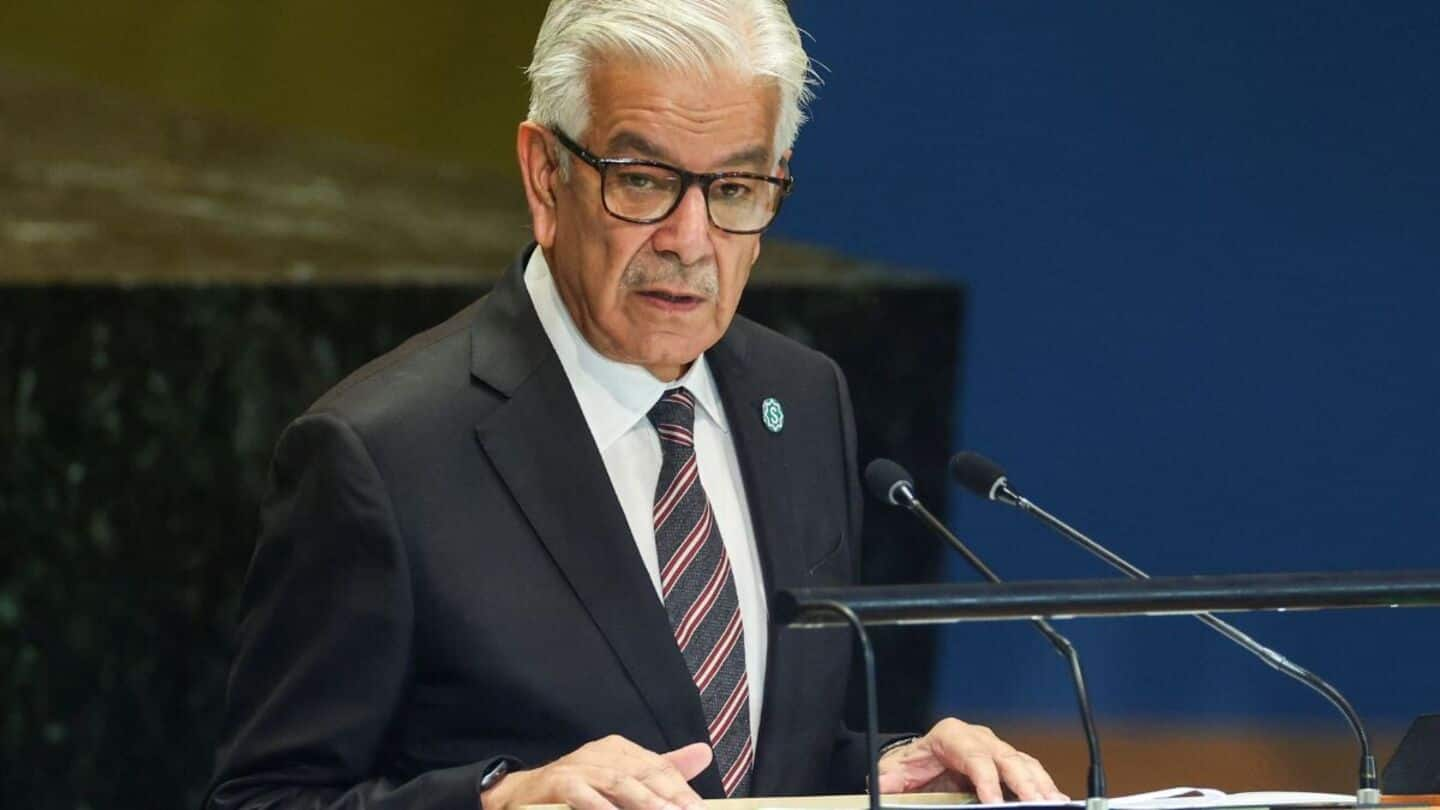
'No connection': Pakistan denies role in Pahalgam attack, blames locals
What's the story
Pakistan's Defense Minister Khawaja Muhammad Asif has distanced Pakistan from the terrorist attack in Pahalgam, Kashmir, on Tuesday, which killed 26 people. Asif, a close aide of Prime Minister Shehbaz Sharif, said Pakistan had "nothing to do" with this act of terrorism and condemned it in all forms. He went on to blame local forces within Jammu and Kashmir for the attack.
Revolution
Asif labels attack as a revolution by locals
Describing the Pahalgam attack as a "revolution" by "homegrown forces," Asif claimed that this wasn't an isolated case but a larger pattern of revolts against India. "This is all home-grown, there are revolutions in different so-called states against India, not one, not two, but dozens, from Nagaland to Kashmir, in the south, in Chhattisgarh, in Manipur. In all these places, there are revolutions against the Indian government," he said.
Terrorism
Pakistan's stance on terrorism and local unrest
An outfit linked to Lashkar-e-Taiba (LeT), known as The Resistance Front (TRF), has claimed responsibility for the attack that occurred on April 22 in the afternoon. TRF, believed to be funded by Pakistan's intelligence agency ISI, is seen as a proxy for LeT founder and 26/11 mastermind Hafiz Saeed. On Tuesday, the organization claimed that the attack was motivated by a "demographic change" in the region.
TRF
TRF was formed in 2019
"More than 85,000 domiciles have been issued to non-locals, creating a pathway for demographic change in Indian-occupied Jammu & Kashmir (IIOJK). These non-locals arrive posing as tourists, obtain domiciles, and then begin to act as if they own the land. Consequently, violence will be directed toward those attempting to settle illegally," TRF said. It was formed in 2019 in the wake of the abrogation of Article 370 in Jammu and Kashmir.